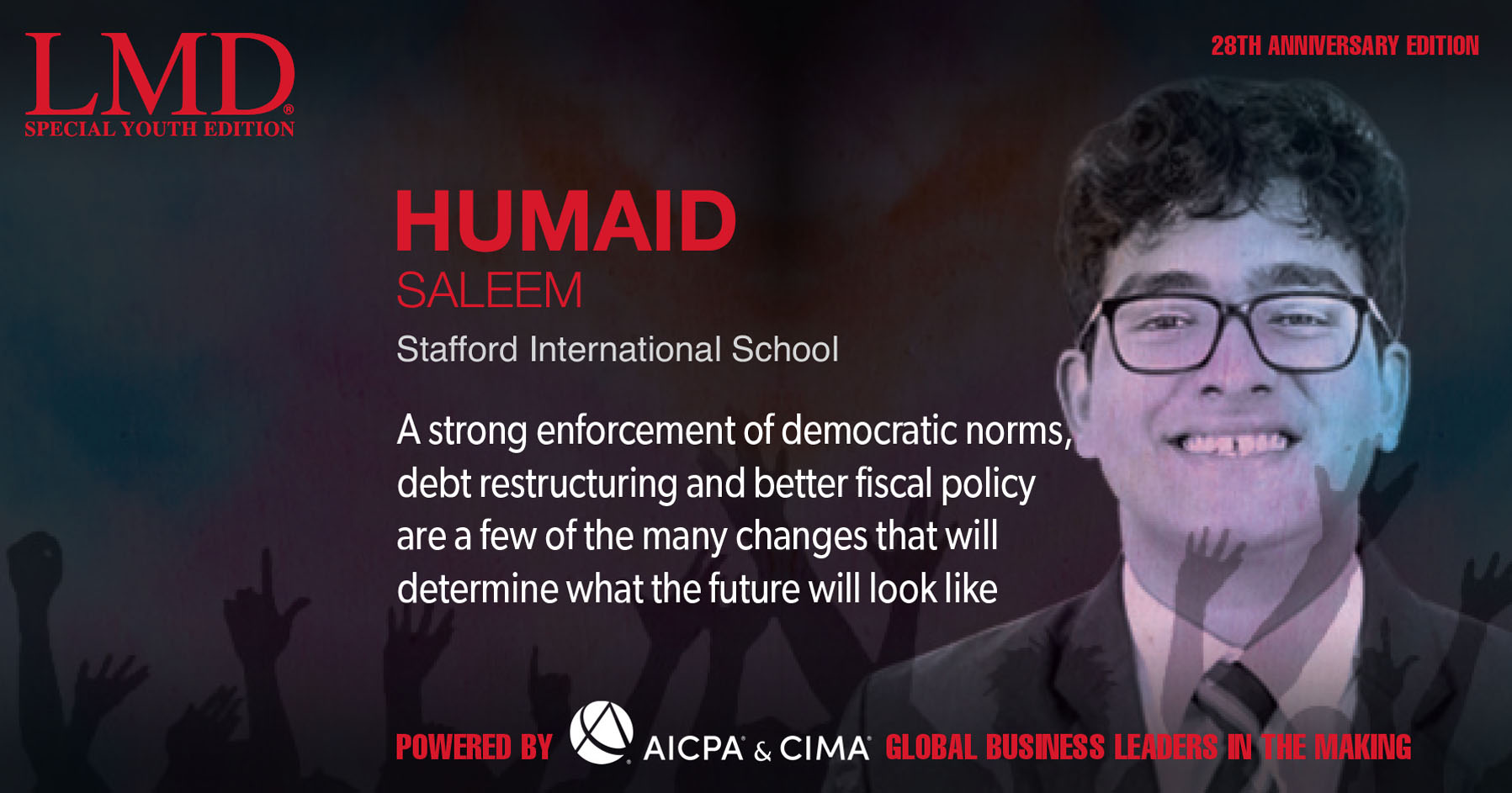Q: How will you be the change you want to see?
A: The best way to influence the world is to impact the lives of others around you. I love teaching and mentoring my peers and juniors – it’s extremely gratifying to see people be themselves and do what they love.
Being a teacher-professor is how I intend to bring about that change.
Q: As far as our education system goes, what are the pros and cons?
A: Access and opportunity tend to be one of the pros; and given that most government schools provide affordable and subsidised education, it is easier for children to obtain primary and secondary education.
However, rural areas lack the infrastructure and means to provide the said education – and the transition to education online during the pandemic massively impacted accessibility due to the additional requirements.
The approach we take to education is a con because of the prioritisation of grades and academics – ‘A’s and ‘A-stars’ are the be all and end all, and we write off children who don’t achieve these standards. Whereas in the real world, it’s often your people skills and ability to apply knowledge that bring success. Therefore, a fine balance between grades and soft skills is needed.
What’s more, the system does not deal with the mental health concerns of children such as bullying and depression. It is often seen as a symbol of weakness to talk about these issues and those who do are shunned. The world is changing and we need a better approach to the emotional wellbeing of students in the future.
Q: Do you see yourself remaining in Sri Lanka – or returning to Sri Lanka – or do you think it’s best to migrate?
A: This is highly dependent on the socioeconomic situation in Sri Lanka a decade or two from now. I’ll be in the US for the four years of my undergraduate degree, and hope to work abroad and then pursue my masters. I’d love to reside permanently in Sri Lanka because despite its flaws, it is my home.
However, that sentiment doesn’t outweigh the practical harms of living in an environment that’s politically and economically unstable. So in summary, I think it’s best to migrate right now; but if the situation improves, I will definitely return.
Q: Where do you see Sri Lanka in a decade from today?
A: Once again, this is highly dependent on whether structural changes regarding economic policy and the political establishment occur.
A strong enforcement of democratic norms, debt restructuring and better fiscal policy are a few of the many changes that will determine what the future will look like. So no, I cannot envision what the future will look like because there’s no sure fire way of predicting the probability that these changes will materialise. However, if they do, the future is something to look forward to.
MESSAGE TO THE YOUTH
It’s okay to make yourself a priority. Take a break when you need it – and always do what makes you happy.
SRI LANKA: FIVE BURNING ISSUES
Debt
Discrimination
Poverty
Lack of accountability
Populism
ROLE MODEL
Naruto Uzumaki – He may be fictional but never gave up on his dreams and was motivated by his love for those closest to him.
SUMMARY
It may sound like a cliché, but there’s nothing wrong with following your passions.




